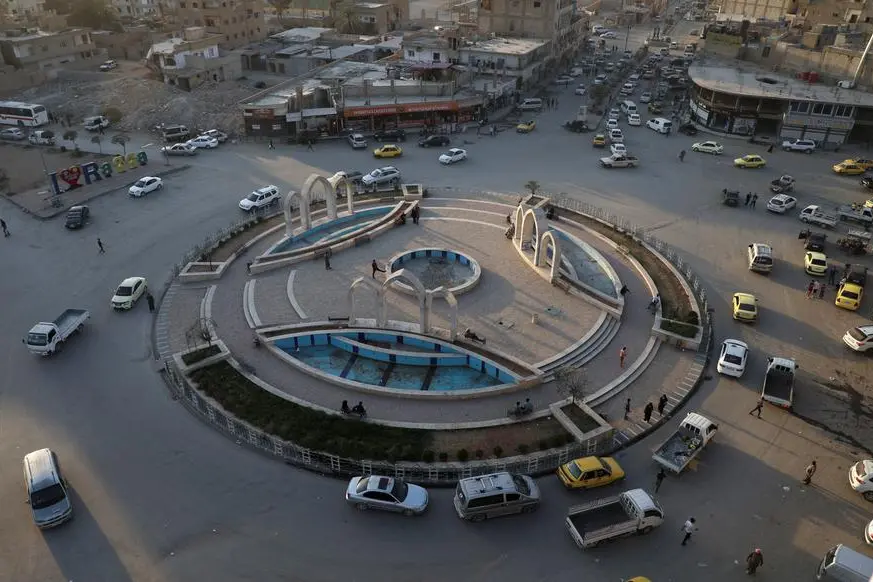PHOTO
Raqqa - Five years since Islamic State was driven from its Syrian headquarters at Raqqa, the city is still slowly recovering from the devastation caused by the battle between U.S.-backed forces and the jihadists.
Today, badly damaged buildings bear testament to the battle for the city that culminated in October 2017 with Islamic State's defeat, a key moment in the demise of its self-declared "caliphate" in Syria and Iraq.
Ragheb Abeid, who still lives in a partially destroyed home, said that after Raqqa's liberation, people were "scared at the sight of the destruction, especially at night when the power went off".
He said a good amount of the city was rebuilt after the liberation but work had since slowed due to a collapse of the Syrian pound, which fell precipitously some three years ago.
"The price of materials began to increase," he said.
Still, there is a semblance of normalcy in the streets where Islamic State once paraded military vehicles and staged executions. Public parks are open, the streets are busy with traffic, and pedestrians stroll along a parade of shops.
Islamic State was defeated at Raqqa by the Kurdish-led Syrian Democratic Forces (SDF), backed by air strikes mounted by the U.S.-led coalition. The battle left entire districts in ruins.
In 2019, Amnesty International and the monitoring group Airwars said the U.S.-backed assault to drive Islamic State from Raqqa killed more than 1,600 civilians.
The coalition said at the time it took "all reasonable measures to minimize civilian casualties" and it was investigating allegations.
Raqqa is one of numerous cities devastated during the 11-year-long Syrian war that spiralled out of protests against President Bashar al-Assad's rule in 2011.
While frontlines have largely quieted, the United Nations says more Syrians are in need of humanitarian assistance than at any point since the war began.
The war has killed hundreds of thousands of people and fractured Syria into several areas. Raqqa is today run by authorities affiliated with the U.S.-backed SDF, not the government in Damascus.
Mohamed Nour al-Dheib of the city council said water and sewage systems had been restored, roads repaired, and schools, hospitals and parks reopened.
But available resources were "not appropriate for the scale of need required to rebuild the infrastructure". The overall level of destruction in Raqqa exceeded 90% and parts of the city remained without power, he said.
Islamic State used Raqqa as an administrative centre and a base for planning attacks by followers around the world. It governed according to an ultra-hardline vision of Islam.
Khamis Tomeh, a 48-year-old musician, said cultural life had been suffocated.
"Nobody could play a musical instrument, or sing, or do anything," said Tomeh, who used to hide his instrument.
He said "life had returned" to Raqqa after the jihadists' defeat. "There is a gathering of musicians, we have a cultural centre where we train children in singing and theatre."
(Reporting by Orhan Qereman; Writing by Tom Perry, Editing by Angus MacSwan)





















